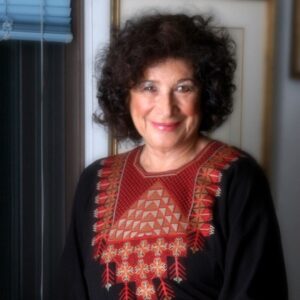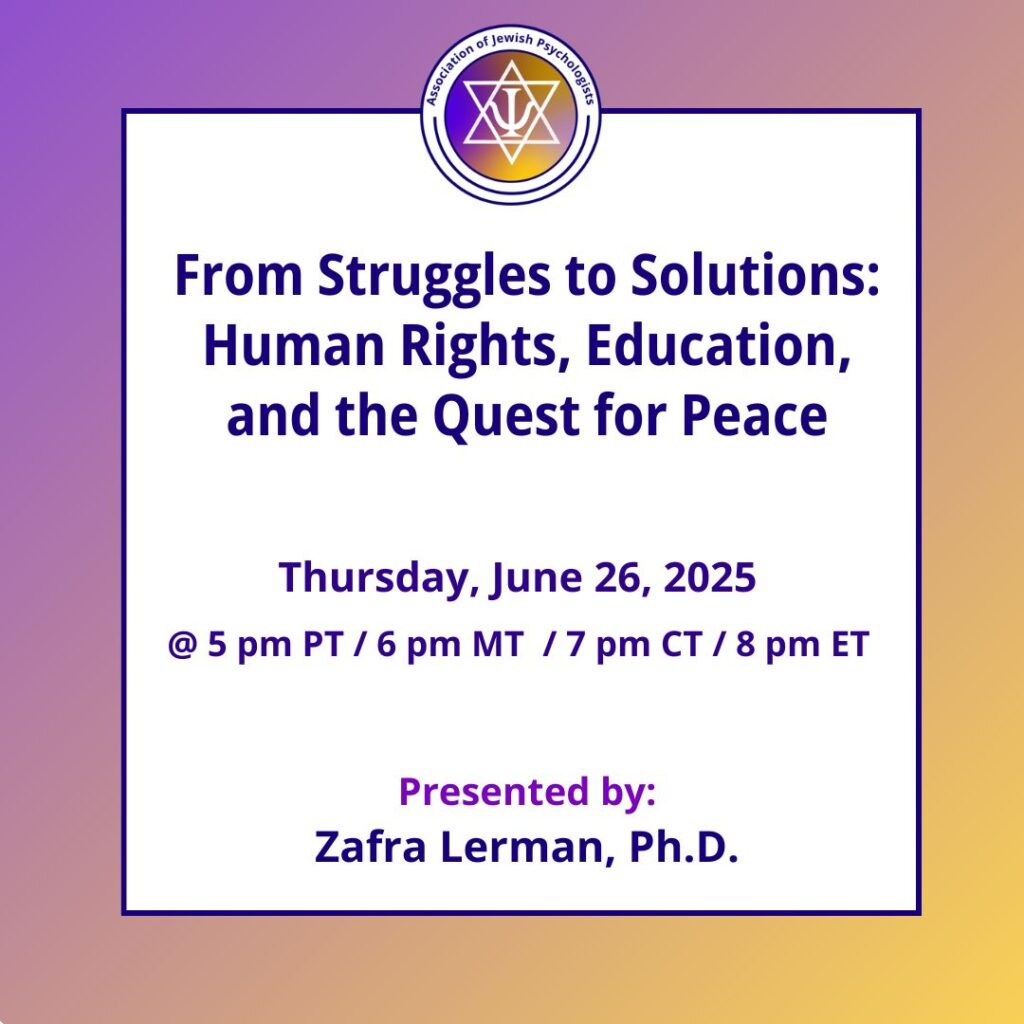Presented by Zafra Lerman, Ph.D.
Date: Thursday, June 26, 2025
Time: 5:00 pm PT / 6:00 pm MT / 7:00 pm CT / 8:00 pm ET
Born in Israel during its formative years, I experienced firsthand the challenges of a developing nation. With food rationing in place, my parents worked tirelessly to build the country. From a young age, I contributed by working in the fields of a kibbutz, embracing the communal lifestyle and collective responsibility that defined these communities.
I fulfilled my national duty by serving in the military, an experience that instilled in me discipline and a deep sense of commitment. Afterward, I pursued my passion for science, earning a Ph.D. in chemistry from the Weizmann Institute of Science and conducting research at institutions such as Cornell, Northwestern, and ETH Zurich.
I later pioneered the integration of arts into science education, incorporating drama, music, dance, and visual arts into chemistry teaching. This creative approach made complex scientific concepts accessible and fostered a deeper appreciation for science among diverse students.
Beyond education, I have been deeply committed to human rights and peace. From 1986 to 2011, I chaired the American Chemical Society's Subcommittee on Scientific Freedom and Human Rights, advocating for persecuted scientists worldwide. My efforts have helped prevent executions, secure the release of prisoners of conscience, and support dissidents seeking freedom.
Recognizing the unifying power of science, I founded the Malta Conferences in 2001. These biennial gatherings bring together scientists from Middle Eastern nations—often with strained relations—to collaborate on regional challenges such as water scarcity and environmental sustainability. Through scientific cooperation, these conferences foster peace and understanding.
I remain steadfast in the belief that science is a universal language capable of transcending cultural and political barriers. By merging education, creativity, and advocacy, I continue to strive for a more peaceful and equitable world.

Zafra Lerman is a scientist, educator and humanitarian. She received a Ph.D. in Chemistry from the Weizmann Institute of Science, Israel and conducted research on Isotope Effects at Cornell and Northwestern Universities in the U.S. and the ETH, Zurich, Switzerland. She developed an innovative approach of teaching science through art, music, drama, dance, and rap which was successful with underprivileged students around the globe. She worked on human rights cases in the former Soviet Union, Russia, China, Guatemala, Cuba, Peru, and South Africa and was successful in preventing executions, releasing prisoners from jail and bringing dissidents to freedom. She is the President of the Malta Conferences Foundation which uses science diplomacy as a bridge to peace in the Middle East.
She received over forty international awards, including the Presidential Award for Mentoring from President Clinton (1999), AAAS Award for Science Diplomacy (2015), American Physical Society Andrei Sakharov Prize for Human Rights (2016), Peace and Justice prize from the UN NOVUS summit (2016), Distinguished Women in Chemistry or Chemical Engineering Award from the International Union of Pure and Applied Chemistry (2017), and she was nominated for the Nobel Peace Prize by a member of the US Congress and a member of the French Parliament (2017, 2018, 2019, 2020, 2021, 2023, 2025).
Her book “Human Rights and Peace: A Personal Odyssey” was published in August 2024. On March 6, 2025, she received in New York the International Advocate for Peace Award from the Cardozo Journal of Conflict Resolution. Previous awardees include Bill Clitnon, Jimmy Carter, and Archbishop Desmond Tutu. (https://cardozo.yu.edu/news/scientist-zafra-lerman-receive-cardozos-24th-annual-international-advocate-peace-award-march)
From Struggles to Solutions: Human Rights, Education, and the Quest for Peace
"*" indicates required fields



